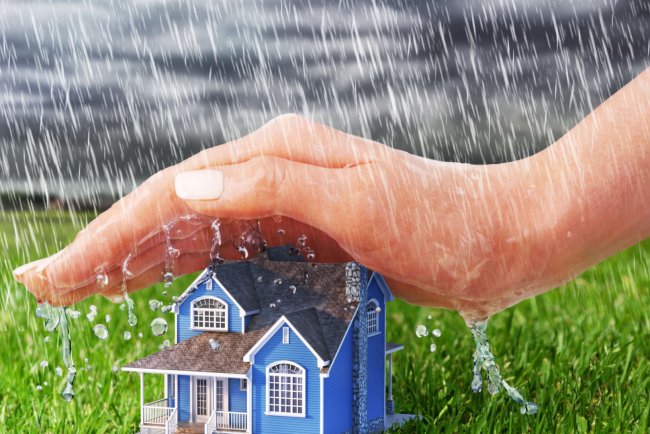Do I Need Homeowners Insurance?
Investing in homeowners insurance is not just about protecting your property but also about safeguarding your financial future.

When purchasing a home, one of the critical decisions you'll face is whether or not to invest in homeowners insurance. This type of insurance is often considered an optional expense, but it's crucial to understand its benefits and why it might be essential for protecting your investment and personal finances. In this comprehensive guide, we’ll explore what homeowners insurance is, the types of coverage it provides, and why it’s often considered a necessity for homeowners.
What is Homeowners Insurance?
Homeowners insurance is a type of property insurance that covers losses and damages to an individual's residence and assets within the home. It also offers liability protection against accidents that occur on the property. Essentially, homeowners insurance provides financial protection against a range of risks associated with owning a home.
Types of Coverage
-
Dwelling Coverage: This part of the policy helps cover the cost to repair or rebuild your home if it’s damaged by covered perils such as fire, windstorm, hail, or vandalism. It usually does not cover damage from earthquakes or floods, which require separate policies.
-
Personal Property Coverage: This covers the loss or damage to personal belongings within your home, including furniture, electronics, and clothing. If items are stolen or damaged by a covered peril, this portion of your policy helps cover the replacement or repair costs.
-
Liability Coverage: Liability coverage protects you if someone is injured on your property or if you accidentally cause damage to someone else’s property. It covers legal fees and potential settlements or judgments if you’re found liable.
-
Additional Living Expenses (ALE): If your home is uninhabitable due to a covered loss, ALE helps cover the cost of temporary living arrangements, such as hotel stays or rental accommodations, until your home is repaired or rebuilt.
-
Medical Payments Coverage: This covers medical expenses for injuries sustained by guests on your property, regardless of who is at fault. It provides a way to cover minor medical costs without resorting to liability claims.
Why is Homeowners Insurance Important?
-
Protects Your Investment: Your home is likely one of the most significant investments you'll make in your lifetime. Homeowners insurance ensures that if a disaster strikes, you won’t have to bear the financial burden of repairs or replacement alone. Without insurance, you would be responsible for the entire cost of rebuilding or repairing your home out of pocket.
-
Covers Unexpected Events: Natural disasters, such as fires, hurricanes, or tornadoes, can cause extensive damage. Homeowners insurance helps cover the costs associated with these events. While some disasters, like earthquakes and floods, may require separate policies, homeowners insurance provides coverage for a wide range of risks.
-
Liability Protection: Accidents can happen, and if someone is injured on your property, you could be held liable for their medical expenses and other damages. Liability coverage within a homeowners insurance policy can protect you from potentially costly legal claims and provide financial assistance for legal defense.
-
Peace of Mind: Knowing that you have financial protection in place can provide peace of mind. In the event of a loss or damage, having homeowners insurance ensures that you won’t be left to handle the situation alone. This peace of mind is especially important in times of crisis.
-
Mortgage Requirement: Most mortgage lenders require homeowners insurance as a condition of the loan. This requirement ensures that their investment in your property is protected. If you fail to maintain homeowners insurance, your lender may purchase a policy on your behalf, often at a higher cost.
What Does Homeowners Insurance Typically Not Cover?
While homeowners insurance provides broad protection, there are certain exclusions. Understanding what’s not covered can help you make informed decisions about additional coverage options.
-
Flood Damage: Standard homeowners insurance policies do not cover flood damage. If you live in an area prone to flooding, you may need to purchase separate flood insurance through the National Flood Insurance Program (NFIP) or a private insurer.
-
Earthquake Damage: Similar to flood insurance, earthquake damage is not typically covered under standard homeowners insurance policies. Earthquake insurance can be purchased separately if you live in an area susceptible to seismic activity.
-
Maintenance Issues: Homeowners insurance does not cover damage due to lack of maintenance or wear and tear. For example, if a roof leak is due to old or poorly maintained roofing, the insurance policy may not cover the repair costs.
-
High-Value Items: Items such as jewelry, art, or collectibles may exceed the coverage limits of a standard policy. You might need to purchase additional coverage or a rider to fully protect these high-value items.
-
Intentional Damage: Damage caused by intentional acts, whether by the homeowner or others, is not covered by homeowners insurance. Insurance is designed to protect against accidents and unforeseen events, not deliberate actions.
Factors to Consider When Choosing Homeowners Insurance
-
Coverage Amount: Ensure that your policy covers the full replacement cost of your home and belongings. Replacement cost coverage will pay to replace damaged items with new ones, while actual cash value coverage factors in depreciation.
-
Deductible: The deductible is the amount you pay out of pocket before your insurance coverage kicks in. Higher deductibles typically result in lower premium costs, but make sure you choose a deductible you can comfortably afford.
-
Premium Costs: Premiums vary based on factors such as the location of your home, its age, and the coverage amount. Compare quotes from different insurers to find a policy that fits your budget and coverage needs.
-
Policy Exclusions: Review the policy exclusions and limitations to understand what is not covered. This helps you make informed decisions about additional coverage or endorsements.
-
Insurance Provider: Choose a reputable insurance provider with a strong financial rating and positive customer reviews. A reliable insurer will be better equipped to handle claims efficiently and provide excellent customer service.
Homeowners insurance is a critical component of protecting your home, belongings, and financial well-being. It provides essential coverage against a range of risks, from natural disasters to liability claims. While it may seem like an additional expense, the benefits far outweigh the costs, offering peace of mind and financial protection.
By understanding the types of coverage available, what’s typically excluded, and how to choose the right policy, you can make an informed decision about homeowners insurance. Whether you're a new homeowner or have owned your home for years, reviewing and updating your insurance coverage regularly ensures that you’re adequately protected against unforeseen events.
Remember, investing in homeowners insurance is not just about protecting your property but also about safeguarding your financial future. It provides a safety net that can help you recover from unexpected losses and ensure that you’re not left to handle the burden alone.
FAQs about Homeowners Insurance
1. What is homeowners insurance?
Homeowners insurance is a type of property insurance that covers financial losses due to damage to your home and belongings, liability for injuries or damages that occur on your property, and additional living expenses if your home becomes uninhabitable due to a covered loss.
2. What types of coverage are included in homeowners insurance?
Homeowners insurance typically includes:
- Dwelling Coverage: For repairs or rebuilding your home.
- Personal Property Coverage: For loss or damage to personal belongings.
- Liability Coverage: For legal claims related to injuries or property damage.
- Additional Living Expenses (ALE): For temporary living costs if your home is uninhabitable.
- Medical Payments Coverage: For medical expenses of guests injured on your property.
3. Why do I need homeowners insurance?
Homeowners insurance is essential to protect your significant investment in your home. It covers the cost of repairs or rebuilding, provides liability protection, and offers peace of mind knowing you’re financially protected against a variety of risks.
4. What does homeowners insurance not cover?
Homeowners insurance typically does not cover:
- Flood Damage: Requires separate flood insurance.
- Earthquake Damage: Requires separate earthquake insurance.
- Maintenance Issues: Damage due to lack of maintenance or wear and tear.
- High-Value Items: Items like jewelry or collectibles may need additional coverage.
- Intentional Damage: Deliberate damage is not covered.
5. How can I determine the right amount of coverage for my home?
To determine the right amount of coverage, ensure your policy covers the full replacement cost of your home and personal belongings. Replacement cost coverage will pay for new items to replace damaged ones, rather than accounting for depreciation.
6. What factors affect the cost of homeowners insurance?
Factors that affect homeowners insurance premiums include:
- The location and condition of your home.
- The value of your home and belongings.
- Your deductible amount.
- The coverage limits and policy exclusions.
- The insurance provider’s rates and financial stability.
7. What is a deductible, and how does it affect my policy?
A deductible is the amount you must pay out of pocket before your insurance coverage kicks in. Choosing a higher deductible generally results in lower premium costs, but you should select a deductible you can afford to pay in the event of a claim.
8. Are there any additional coverages I should consider?
You may want to consider additional coverages or endorsements for items not included in a standard policy, such as:
- Flood Insurance: If you live in a flood-prone area.
- Earthquake Insurance: If you live in an earthquake-prone area.
- Valuable Items Insurance: For high-value items like jewelry or art.
9. How do I choose a reliable insurance provider?
When choosing an insurance provider, look for a company with strong financial ratings, positive customer reviews, and a good reputation for handling claims efficiently. Comparing quotes and coverage options from different insurers can also help you find the best policy for your needs.
10. What should I do if I need to file a claim?
If you need to file a claim, contact your insurance provider as soon as possible to report the loss or damage. Document the damage thoroughly, including taking photographs and keeping records of expenses. Your insurer will guide you through the claims process and help you understand the next steps.
11. How often should I review my homeowners insurance policy?
It’s a good idea to review your homeowners insurance policy annually or whenever you make significant changes to your home or personal belongings. This ensures that your coverage remains adequate and up-to-date with your current needs.
12. Can my homeowners insurance policy be cancelled?
Yes, an insurance policy can be canceled by either the insurer or the policyholder. Common reasons for cancellation include non-payment of premiums, significant changes to the property, or a high number of claims. Review your policy’s terms and conditions for specific cancellation clauses.
What's Your Reaction?



















